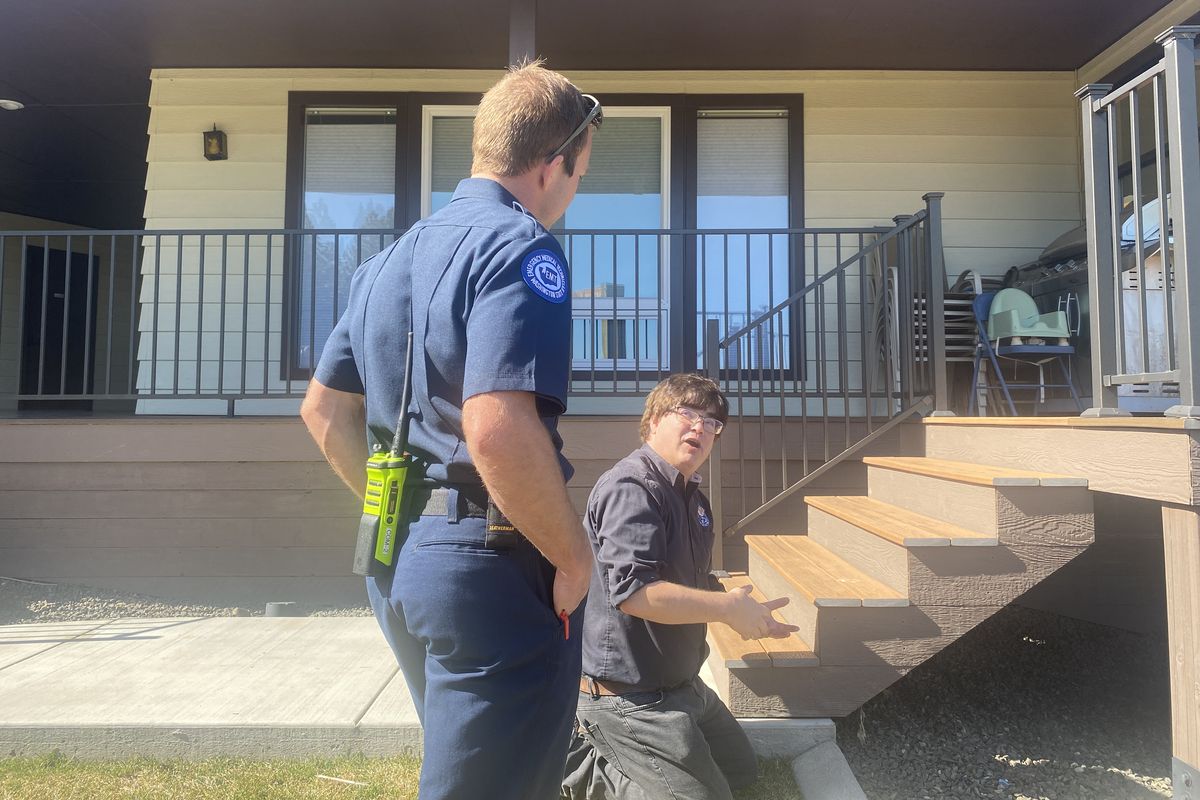‘Get prepared now’: Local fire officials and DNR encourage Spokane Valley residents to become wildfire ready

It’s never too early to start thinking about the fire season. In fact, now is the perfect time, fire officials said at a wildfire readiness event in Spokane Valley Tuesday.
“I’m encouraging everyone in our community to get prepared now. May is quickly approaching. This is the perfect time of year to start cleaning up your yards, cleaning up those spaces around your home that could catch an ember and start your house on fire,” said Brett Anderson, deputy chief and fire marshal at the Spokane Valley Fire Department.
Guy Gifford, community resiliency assistant division manager with the state Department of Natural Resources; Marty Long, division chief of Spokane County Fire District 8; and Suzanne Schmidt, state representative of the fourth legislative district, also spoke at the event.
The purpose of Tuesday’s event was to educate residents in the Valley’s Ponderosa neighborhood on steps they can take to make their homes more fire safe, specifically through the state’s Wildfire Ready Neighbors program started in 2021.
Through Wildfire Ready Neighbors, residents can sign up online, answering a few questions about their home, to have a free consultation with a local wildfire expert at their home and receive a personalized wildfire ready plan.
“Individual actions add up to create a neighborhood that is more resilient and better protected from wildfire. Wildfire Ready Neighbors is proving that we are stronger when we work together,” Gifford said. “To date, over 5,000 Washington residents have received a free custom wildfire ready plan.”
After the event, attendees could tag along as Valley resident and Spokane Valley Fire battalion chief Paul Kimball received a Wildfire Ready visit to his home courtesy of Gifford.
As Gifford showed in the home visit, there are several steps residents can take to make their homes wildfire ready – even if that resident is a firefighter.
Up to 5 feet away from decks, outbuildings and the home’s edges, residents should remove any flammable materials. This could mean dried leaves, trash or doormats made of combustible materials.
Residents should opt for rock or other anti-inflammatory materials rather than mulch for garden beds.
“Bark is tree. It will burn,” Long explained. “If you have a wood siding and the bark is right up to that, embers will ignite the bark and the bark will ignite the side of the home.”
Officials used the term “ember trap” to refer to places on or near a home where an ember from a nearby fire could take hold and ignite the home.
Gutters, outdoor furniture and small spaces under decks can become ember traps when flammable materials like pine needles build up there.
Mesh metal sheets can be placed on the inside of outdoor vents and doors, and windows and garage doors should be sealed to prevent embers from entering the home.
But it takes more than one resident’s action for a neighborhood to be wildfire ready, Gifford said.
“To be successful, preparedness and resiliency to wildfire must be a team effort, what we call an all-hands, all-lands approach – residents, fire districts, state agencies, all of us working together,” Gifford said.
For more information about Wildfire Ready Neighbors or to sign up for a free consultation, visit wildfireready.com.